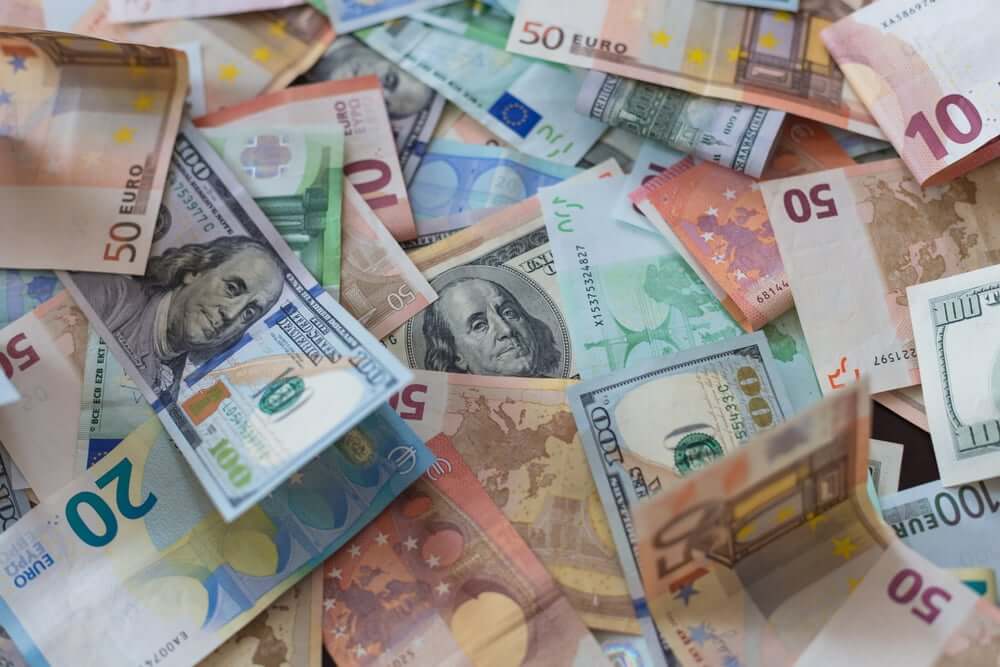
U.S. dollar hit high against the Yen. What about Sterling?
The U.S. dollar skyrocketed by 0.7% versus the Japanese yen. It exchanged hands at 135.27 yen, at last, rebounding from a three-and-a-half-month low of 133.62 reached on Friday. The British Pound also decreased against the greenback after jumping by more than five months high of $1.2345 in Asian trade earlier in the session. The sterling shaved off 0.5% to $1.2233 in European hours. However, the euro traded in the green, remaining near $1.0585 in Asian hours, its peak since June 28.
Market participants weighed on the dollar’s position, trying to assess whether the currency’s recent decline was coming to an end. In recent weeks, the forex market trading was choppy. The U.S. dollar tumbled from its multi-decade highs it hit against most major currencies earlier in the year.
Federal Reserve had set an aggressive pace of interest rate hikes over the last several months to hinder soaring inflation, also bolstering the greenback in the process. However, the currency started to lower after the agency hinted that it might soften its policy starting from its December meeting. Last week, the dollar index plummeted by 1.4% against the basket of six major currencies on the news. Overall, it shaved off 5% in November, experiencing its worst month since 2010.
However, some analysts speculate that such a narrative is coming to an end. Jane Foley, the senior FX strategist at Rabobank, noted that traders’ expectations about peak inflation, peak interest rates, and peak greenback is turning into a persistence of inflation and a persistence of higher-for-longer interest rates. She also added that markets seem to be returning to normal conditions for the U.S. currency.
What do the other analysts say?
ING also stated that the greenback might stop its downfall, for now, considering that there is still a possibility of the Federal Reserve maintaining its hawkish narrative for the near future. Besides, oil and gas prices could soar again, and even though China is easing its COVID restrictions, that process might prove complicated.
On Friday, U.S payrolls data showed that employers hired more workers in November than economists expected. The companies also increased wages. This could give the Fed officials more room to hike rates.
Meanwhile, the Chinese yuan skyrocketed on Monday, with the U.S. dollar plunging below 7.0 yuan in offshore trade. The greenback exchanged hands at 6.9336 yuan at last. It dropped by as much as 1.5% on the onshore yuan, hitting 6.9449 at one point on Monday, its weakest level since September 13.
Several Chinese cities have started easing their coronavirus restrictions today. People protested the authorities’ strict “zero-COVID” strategy recently, and in the fallout, the government changed its official message about how dangerous the virus is. Christopher Wong, a currency strategist at OCBC in Singapore, noted that it might seem that the country is taking baby steps, but China is at last moving in the direction of reopening.
The government plans to announce the easing of testing requirements in the country soon. It will also allow positive cases and close contacts to isolate at home instead of hospitals, but only under certain conditions.
On Monday, the Australian dollar also climbed up to $0.6806. Moreover, the U.S. dollar dropped by 0.25% versus the Swiss franc, trading at 0.9346.
How are the EM currencies faring?
Emerging market currencies rallied today thanks to the China news. South Africa’s rand surged forward by 1.8% after weathering sharp drops last week due to political uncertainty. Furthermore, MSCI’s index of emerging market stocks gained 1.4%. Hong Kong’s Hang Seng index also jumped by 4.5%, reaching three-month highs. Still, some other Asian indexes declined as uncertainty about the Fed’s future policy decision weighed on the market sentiment.
South Africa’s rand soared after tumbling by 2.5% last week, and shares in Johannesburg added 1.3%. Besides, South Africa’s sovereign bonds also added as much as 2 cents on the greenback.
The executive committee of the African National Congress met to decide the fate of the country’s President, Cyril Ramaphosa. The latter is suspected of the volition of his oath of office. However, he denied all charges.
On Monday, the Russian rouble hit a seven-week low versus the dollar. The Turkish lira also traded in the red today, hitting new lows. According to new data, inflation dropped below 85% in the country, ending an increase of 17 straight months.


